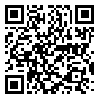BibTeX | RIS | EndNote | Medlars | ProCite | Reference Manager | RefWorks
Send citation to:
URL: http://jdm.tums.ac.ir/article-1-5233-en.html
Background and Aims: Successful pediatric dentistry depends on the dentist's technical skills, as well as his/her ability to acquire and maintain a child's cooperation. The correction of dentist’ performance in this area affects the view of parents and increases the quality of dental services. The aim of this study was to evaluate the attitudes of general dentists toward behavior guidance techniques in Isfahan.
Materials and Methods: In this descriptive- analytic cross-sectional study, 100 general dentists of Isfahan city were selected with simple random sampling technique. They were asked to complete the questionnaire inquiring their attitude toward four different behavioral management techniques . An appropriate question about each of the methods was proposed by the authors, along with demographic characteristics including: gender, age, university, year of graduation, work experience, the mean number of pediatric patients referred in one month was provided in the form of a questionnaire. To evaluate the attitude of dentists to the questionnaire, the score from 1 to 5 was given to each item and the total score was considered. Higher score indicated more positive attitude of dentist. Data were analyzed using T-test, Pearsons correlation and one-way ANOVA (P<0.05).
Results: The mean scores for dental behavioral management techniques were positive reinforcement (4.2±2.7), general anesthesia (3.5±4.4), N2O sedation (3.4±4.4) and pharmacologic sedation (3.2±2.7), respectively. There were no significant differences between the mean score of dentist attitude and age, gender, clinical experience and the number of pediatric patient (P>0.05).
Conclusion: General dentists’ attitudes towards different behavior management techniques were associated with age, gender, clinical experience and the number of pediatric patient. General dentists’ tend was more towards non-drug behavior control methods such as positive reinforcement.
Received: 2014/10/21 | Accepted: 2014/10/21 | Published: 2014/10/21
| Rights and Permissions | |
 |
This work is licensed under a Creative Commons Attribution-NonCommercial 4.0 International License. |




